China's Mars orbiter enters remote-sensing orbit
Wednesday, 10 November 2021 07:24 China's Mars orbiter entered its remote-sensing orbit around Mars on Monday, starting the global remote-sensing exploration of the planet, the China National Space Administration (CNSA) said.
The CNSA said the orbit was set according to the needs of the orbiter in conducting global detection and relaying communications between the Mars rover and Earth.
The seven scientific payloads a
China's Mars orbiter entered its remote-sensing orbit around Mars on Monday, starting the global remote-sensing exploration of the planet, the China National Space Administration (CNSA) said.
The CNSA said the orbit was set according to the needs of the orbiter in conducting global detection and relaying communications between the Mars rover and Earth.
The seven scientific payloads a Virgin Galactic announces Q3 2021 financial results
Wednesday, 10 November 2021 07:24 Virgin Galactic Holdings, Inc. has announced its financial results for the third quarter ended September 30, 2021.
"We are entering our fleet enhancement period with a clear roadmap for increasing the durability, reliability and predictability of our vehicles in preparation for commercial service next year," said Michael Colglazier, Chief Executive Officer of Virgin Galactic.
"Demand
Virgin Galactic Holdings, Inc. has announced its financial results for the third quarter ended September 30, 2021.
"We are entering our fleet enhancement period with a clear roadmap for increasing the durability, reliability and predictability of our vehicles in preparation for commercial service next year," said Michael Colglazier, Chief Executive Officer of Virgin Galactic.
"Demand Crew Dragon Endeavour recovered after a successful splashdown
Wednesday, 10 November 2021 07:24 The SpaceX Crew Dragon Endeavour spacecraft is lifted onto the GO Navigator recovery ship after it landed with NASA astronauts Shane Kimbrough and Megan McArthur, Japan Aerospace Exploration Agency (JAXA) astronaut Aki Hoshide, and ESA (European Space Agency) astronaut Thomas Pesquet in the Gulf of Mexico off the coast of Pensacola, Florida, Monday, Nov. 8, 2021. Kimbrough, McArthur, Hoshide, an
The SpaceX Crew Dragon Endeavour spacecraft is lifted onto the GO Navigator recovery ship after it landed with NASA astronauts Shane Kimbrough and Megan McArthur, Japan Aerospace Exploration Agency (JAXA) astronaut Aki Hoshide, and ESA (European Space Agency) astronaut Thomas Pesquet in the Gulf of Mexico off the coast of Pensacola, Florida, Monday, Nov. 8, 2021. Kimbrough, McArthur, Hoshide, an The Re-Emergence of China: The New Global Era
Wednesday, 10 November 2021 07:24 The current narrative concerning China promulgated by the Western media and many political commentators is invariably hostile. This positioning is especially notable in the US and the UK. Whether out of a fixation with projecting power or motivated by ideological propaganda, this is a distorted perception.
While there are policy areas where, as with any country there is room for criticism
The current narrative concerning China promulgated by the Western media and many political commentators is invariably hostile. This positioning is especially notable in the US and the UK. Whether out of a fixation with projecting power or motivated by ideological propaganda, this is a distorted perception.
While there are policy areas where, as with any country there is room for criticism New agreement between Virgin Orbit and ANA Holdings sets the stage for 20 Launcherone flights from Japan
Wednesday, 10 November 2021 07:24 Virgin Orbit, the responsive launch and space solutions company that has announced a planned business combination with NextGen Acquisition Corp. II, today announced that it has entered into a memorandum of understanding with ANA HOLDINGS INC., the owners of Japan's largest airline, to procure twenty flights of the LauncherOne rocket and to lead the effort to provide funds and support for those o
Virgin Orbit, the responsive launch and space solutions company that has announced a planned business combination with NextGen Acquisition Corp. II, today announced that it has entered into a memorandum of understanding with ANA HOLDINGS INC., the owners of Japan's largest airline, to procure twenty flights of the LauncherOne rocket and to lead the effort to provide funds and support for those o NASA's big new moon rocket is stacked, awaiting launch
Wednesday, 10 November 2021 07:24 NASA is nearing the final stages of rehearsal and checkouts of the Artemis I moon rocket - the first rocket of its kind since the Apollo program - before an uncrewed launch from Florida around the moon planned for early next year.
The 322-foot-tall SLS rocket and Orion capsule are completely assembled and stacked at Kennedy Space Center, a glowing orange and white tower reaching almos
NASA is nearing the final stages of rehearsal and checkouts of the Artemis I moon rocket - the first rocket of its kind since the Apollo program - before an uncrewed launch from Florida around the moon planned for early next year.
The 322-foot-tall SLS rocket and Orion capsule are completely assembled and stacked at Kennedy Space Center, a glowing orange and white tower reaching almos NASA pushes back crewed Moon landing to 2025 or later
Tuesday, 09 November 2021 23:42 The United States will send a crewed mission to the Moon "no earlier than 2025," NASA chief Bill Nelson told reporters on Tuesday, officially pushing back the launch by at least a year.
A target of 2024 was set by the administration of former president Donald Trump when it launched the Artemis program.
But the program has since faced numerous development delays ranging from its vehicles
The United States will send a crewed mission to the Moon "no earlier than 2025," NASA chief Bill Nelson told reporters on Tuesday, officially pushing back the launch by at least a year.
A target of 2024 was set by the administration of former president Donald Trump when it launched the Artemis program.
But the program has since faced numerous development delays ranging from its vehicles NASA delays human lunar landing to at least 2025
Tuesday, 09 November 2021 21:21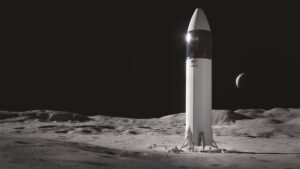
NASA leadership has formally given up on the goal of returning humans to the moon by 2024, pushing back a landing by NASA astronauts on the lunar surface to at least 2025.
U.S. interagency panel to update R&D strategy to tackle orbital debris
Tuesday, 09 November 2021 20:54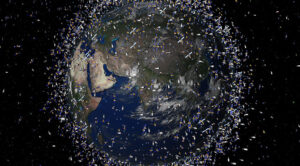
The Biden administration plans to update an existing research-and-development plan aimed at combatting orbital debris.
Spaceflight to launch 13 payloads on first multi-orbit space tug mission
Tuesday, 09 November 2021 20:49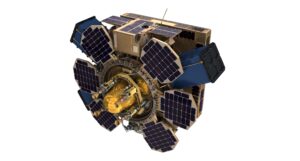
Launch services provider Spaceflight announced plans Nov. 9 to deliver 13 customer payloads across two distinct orbits for the first time next year with its new space tug.
NASA pushes back crewed Moon landing to 2025 or later: agency chief
Tuesday, 09 November 2021 19:47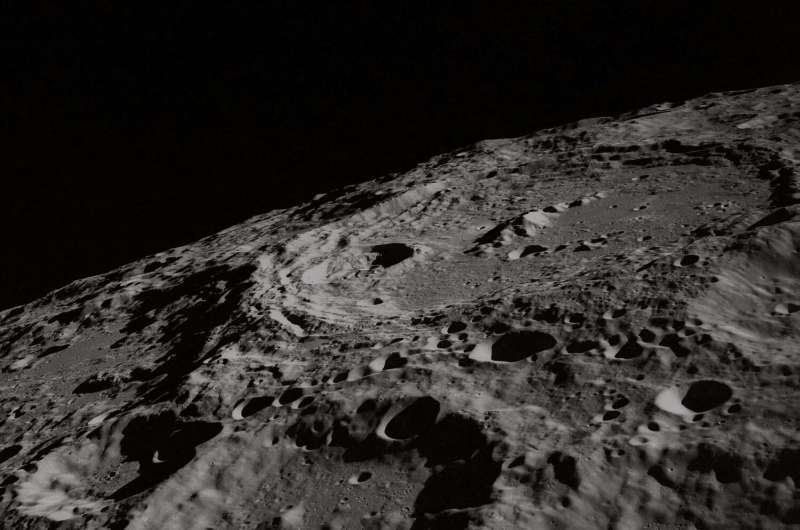
The United States will send a crewed mission to the Moon "no earlier than 2025," NASA chief Bill Nelson told reporters on Tuesday.
A target of 2024 was set by the administration of former president Donald Trump when it launched the Artemis program, but it has faced numerous delays, including most recently litigation with Jeff Bezos' Blue Origin which unsuccessfully sued after losing a lander contract to SpaceX.
© 2021 AFP
Spaceports address environmental impact concerns
Tuesday, 09 November 2021 17:58Blockchain for Space: Cybersecurity, Supply Chain Management and Venture Financing
Tuesday, 09 November 2021 15:31
Blockchain is most often associated with Bitcoin, but the technology has important applications for many industries including the space sector.
Webinar – Blockchain for Space: Cybersecurity, Supply Chain Management and Venture Financing
Tuesday, 09 November 2021 15:31
Blockchain is most often associated with Bitcoin, but the technology has important applications for many industries including the space sector.
Major endorsement for new space mission to find 'Earth 2.0'
Tuesday, 09 November 2021 14:46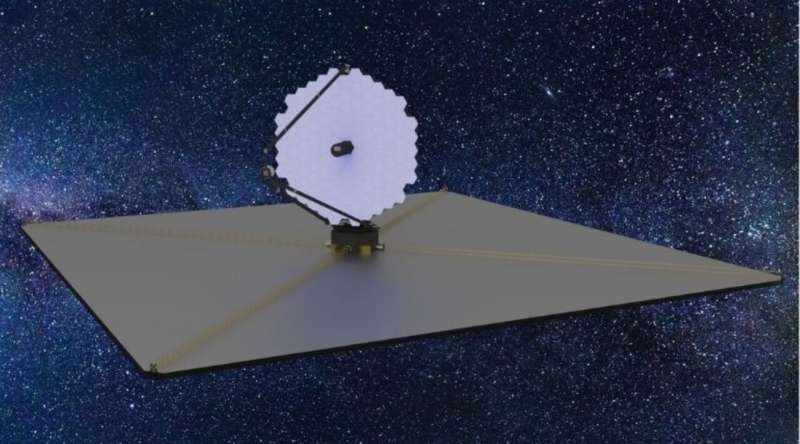
A major new space telescope searching for 'Earth 2.0'—to Succeed Hubble and the soon-to-be-launched James Webb Space Telescope (JWST)—is one step closer to reality.
The Large Ultraviolet Optical Infrared Surveyor (LUVOIR) is a leading mission concept to meet the recommendations of the long-awaited Astro2020 Decadal Survey, which identifies three 'priority scientific areas' for investment in astronomy and astrophysics in the U.S. over the next 10 years and beyond.
Martin Barstow, Professor of Astrophysics and Space Science at the University of Leicester, was appointed by the UK Space Agency as an external observer to the LUVOIR study team, and is co-author of the report backing the proposal. He is also chair of the Space Telescope Institute Council, which provides oversight to the body operates Hubble and will operate JWST.
Professor Barstow says that "Earth-like planets orbiting other stars are enormously difficult to find and detecting them is beyond the capabilities of our current planned space missions, but we are developing the technologies to carry out this search and are close to having the tools ready to fly in space.


